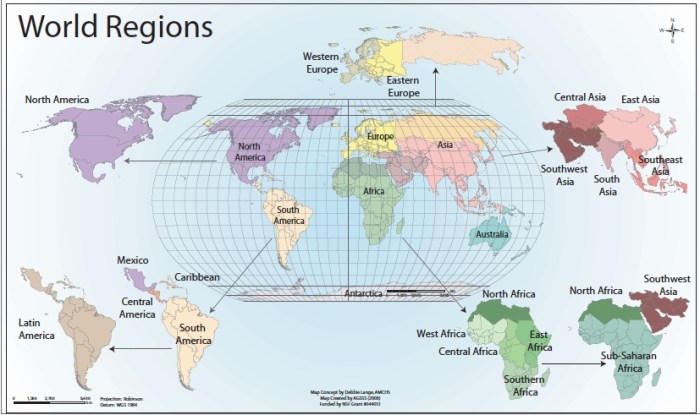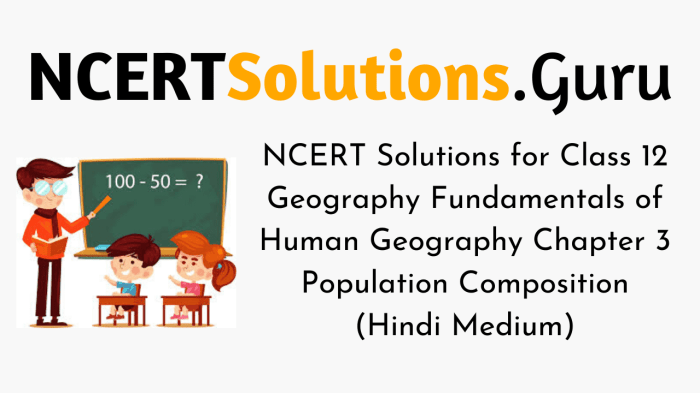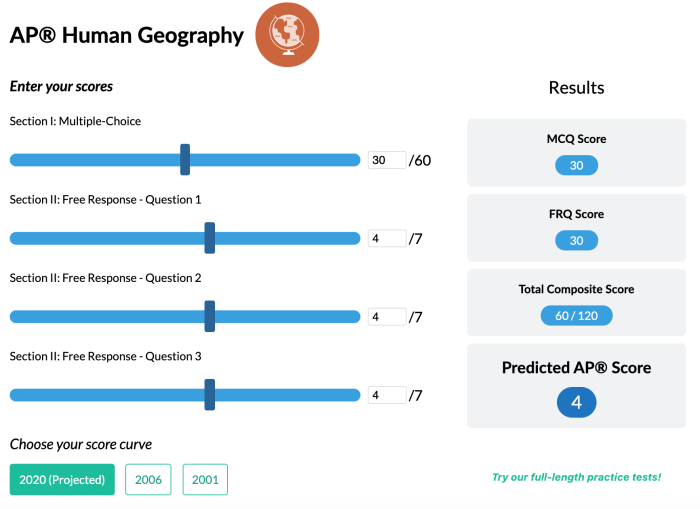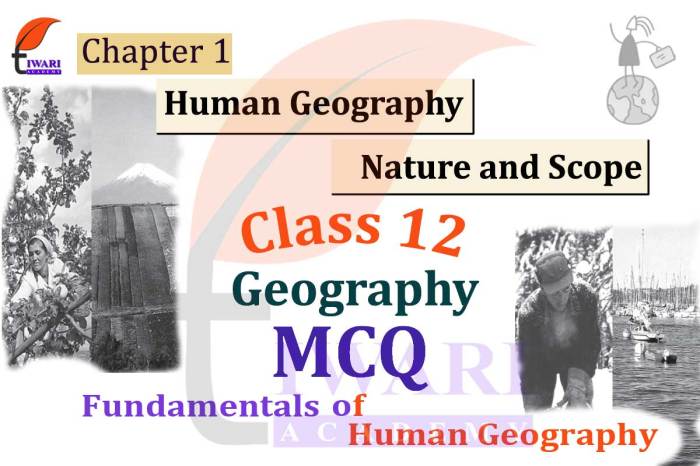Unit 5 mcq ap human geography – Prepare to ace your AP Human Geography exam with Unit 5 MCQs: Master AP Human Geography Concepts. This comprehensive guide covers key concepts, question types, and effective test-taking strategies to help you excel in this challenging subject.
Delve into the intricacies of population patterns, urbanization, economic development, and more, as we unravel the complexities of human geography through engaging discussions and practice questions.
Unit 5 MCQs

Unit 5 of the AP Human Geography course delves into the dynamic relationship between humans and their environment. It examines the processes and patterns of human-environment interactions, the impact of environmental change on human societies, and the strategies employed by humans to adapt to and mitigate environmental challenges.
Unit 5 MCQ AP Human Geography demands a thorough understanding of various concepts. For instance, mastering the phlebotomy order of draw quiz here can enhance your knowledge of medical procedures. Nevertheless, it’s crucial to remain focused on the unit’s core topics to excel in the exam.
Multiple-choice questions (MCQs) are a crucial component of AP Human Geography exams. These questions assess students’ understanding of key concepts, theories, and case studies related to human-environment interactions. MCQs typically present a stem or prompt followed by four or five answer choices.
Students must carefully analyze the stem, identify the main idea or question being asked, and select the answer choice that best aligns with the correct response.
MCQ Format
AP Human Geography MCQs adhere to a specific format designed to test students’ knowledge and critical thinking skills. These questions typically:
- Are based on content covered in the course
- Present a clear and concise stem or prompt
- Offer four or five answer choices
- Require students to apply their knowledge and understanding to select the correct answer
- May include maps, graphs, or other visuals to support the question
Key Concepts and Topics

Unit 5 of the AP Human Geography course explores the complex interactions between humans and their environment. It examines the ways in which human activities have shaped the Earth’s physical landscape, as well as the impacts of environmental changes on human societies.The
key concepts and topics addressed in this unit include:
| Concept | Description |
|---|---|
| Environmental Determinism | The theory that the physical environment exerts a controlling influence on human behavior and development. |
| Possibilism | The theory that the physical environment provides a range of possibilities for human action, but does not determine the outcome. |
| Human-Environment Interaction | The complex and dynamic relationship between humans and their environment, including the ways in which humans modify the environment and the ways in which the environment affects human societies. |
| Environmental Degradation | The process by which human activities damage or destroy the natural environment, including air pollution, water pollution, and deforestation. |
| Sustainability | The ability to meet the needs of the present without compromising the ability of future generations to meet their own needs. |
Types of MCQs

In Unit 5 of the AP Human Geography exam, students will encounter various types of multiple-choice questions (MCQs). Understanding the different types and their characteristics will help students develop effective strategies for answering each type.
Multiple-Choice Question Types
-
-*Single-Answer MCQs
These are the most common type of MCQs. Students are presented with a question and several answer choices, from which they must select the single best answer.
-*Multiple-Answer MCQs
These MCQs require students to select multiple correct answers from a list of options. All selected answers must be correct for the question to be answered correctly.
-*True/False MCQs
These MCQs present a statement and ask students to indicate whether it is true or false. Students must carefully evaluate the statement and determine its accuracy.
-*Data-Based MCQs
These MCQs provide students with data, such as graphs, charts, or tables, and ask questions based on that data. Students must analyze the data and extract the relevant information to answer the question.
-*Scenario-Based MCQs
These MCQs present a scenario and ask students to answer a question based on the information provided in the scenario. Students must carefully read and understand the scenario to identify the relevant information and answer the question.
Test-Taking Strategies

To maximize your performance on the AP Human Geography MCQ exam, effective test-taking strategies are crucial. Here are some proven tips and techniques to help you succeed:
Strategy Table, Unit 5 mcq ap human geography
| Strategy | Description | Benefits | Example |
|---|---|---|---|
| Read the Question Carefully | Take time to thoroughly understand the question and its requirements. | Prevents misinterpretation and ensures you answer the question correctly. | “Which of the following is a characteristic of a pre-industrial economy?” |
| Eliminate Obvious Wrong Answers | Rule out options that are clearly incorrect or irrelevant to the question. | Narrows down your choices and increases the probability of selecting the correct answer. | “Which of the following is NOT a type of economic system?” (a) Capitalism (b) Socialism (c) Communism (d) Monarchy |
| Guess and Check | If you are unsure about an answer, make an educated guess and check the remaining options to eliminate them. | Increases your chances of getting the question right, especially if time is limited. | “Which of the following is the largest continent in the world?” (a) North America (b) South America (c) Asia (d) Africa |
| Manage Your Time Wisely | Allocate time for each question and move on if you get stuck. | Prevents you from spending too much time on difficult questions and ensures you answer as many questions as possible. | Plan to spend 1 minute per question and move on to the next if you cannot find the answer quickly. |
Practice Questions

The practice questions provided in this section are designed to help you assess your understanding of the key concepts and topics covered in Unit 5 of AP Human Geography. These questions are formatted similarly to those you will encounter on the actual AP exam, and they include answer choices and explanations to help you reinforce your learning.
To get the most out of these practice questions, try to answer them without looking at the answer choices first. Once you have selected an answer, check the explanation to see if you were correct. If you were incorrect, review the explanation and the relevant course material to strengthen your understanding.
Cultural Geography
Cultural geography is the study of the ways in which culture influences and is influenced by the environment. It examines how people create and maintain their cultural landscapes, and how these landscapes reflect their values, beliefs, and practices.
- Culture:The shared beliefs, values, customs, and behaviors of a group of people.
- Cultural landscape:The physical environment that has been modified by human activity to reflect the culture of the people who live there.
- Cultural diffusion:The spread of cultural traits from one place to another.
- Cultural diversity:The variety of cultural practices and beliefs that exist around the world.
Language and Religion
Language and religion are two important aspects of culture. Language is a system of communication that allows people to share ideas and information. Religion is a system of beliefs and practices that helps people make sense of the world around them.
- Language family:A group of languages that share a common ancestor.
- Dialect:A regional variation of a language.
- Religion:A system of beliefs and practices that helps people make sense of the world around them.
- Sacred space:A place that is considered holy or special by a particular religion.
Population Geography
Population geography is the study of the distribution, density, and composition of human populations. It examines how these factors affect the environment and how they are affected by the environment.
- Population density:The number of people living in a given area.
- Population distribution:The way in which people are spread out over an area.
- Population composition:The makeup of a population in terms of age, gender, race, and ethnicity.
- Demographic transition model:A model that describes the stages of population growth and decline.
Political Geography
Political geography is the study of the political organization of the world. It examines the different types of political systems, the distribution of power, and the relationships between states.
- State:A political entity that has a defined territory, population, and government.
- Nation:A group of people who share a common culture, history, and language.
- Sovereignty:The supreme authority of a state.
- Geopolitics:The study of the relationship between geography and politics.
Economic Geography
Economic geography is the study of the production, distribution, and consumption of goods and services. It examines how these activities affect the environment and how they are affected by the environment.
- Economic development:The process of improving the economic well-being of a population.
- Economic system:The way in which a society produces, distributes, and consumes goods and services.
- Gross domestic product (GDP):The total value of goods and services produced in a country in a given year.
- Human Development Index (HDI):A measure of the overall well-being of a population.
Review and Analysis

After completing practice tests or the actual exam, it’s crucial to review and analyze your performance on the MCQs. This process allows you to identify areas where you excel and areas that require improvement. By understanding your strengths and weaknesses, you can develop targeted strategies to enhance your overall performance.
Identifying Areas of Strength and Weakness
Begin by carefully examining your MCQ responses. Note the questions you answered correctly and those you answered incorrectly. Analyze the patterns in your responses to determine the topics or concepts you grasp well and those that need further attention. Pay attention to recurring errors or misconceptions to pinpoint specific areas for improvement.
Using Information to Improve Performance
Once you have identified your areas of strength and weakness, use this information to guide your future study and practice. Focus on reinforcing the concepts you understand well while dedicating extra time and effort to improving your understanding of the weaker areas.
Consider seeking additional resources, such as textbooks, online materials, or tutoring, to strengthen your grasp on challenging topics.
Quick FAQs: Unit 5 Mcq Ap Human Geography
What is the purpose of multiple-choice questions (MCQs) in AP Human Geography exams?
MCQs assess your understanding of key concepts and your ability to apply geographical knowledge to real-world scenarios.
How many types of MCQs are there in Unit 5 of the AP Human Geography exam?
There are three main types: single-answer MCQs, multiple-answer MCQs, and data-based MCQs.
What is the best way to prepare for Unit 5 MCQs?
Practice regularly, review key concepts, and familiarize yourself with the different types of MCQs.